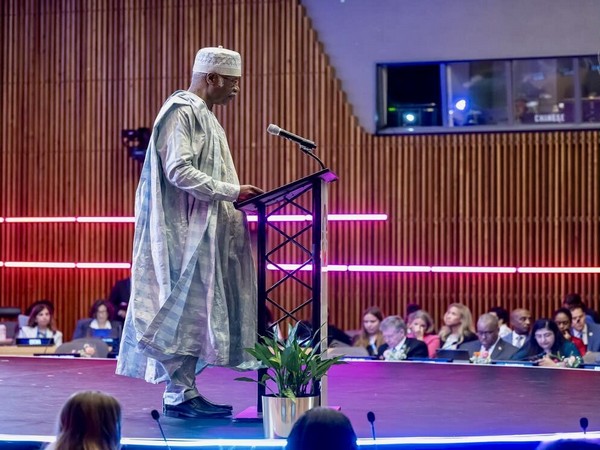
New York: The President of the General Assembly, Philemon Yang, speaking at the G20 Foreign Ministers' Meeting on Wednesday at ECOSOC Chamber in New York said that the G20 countries bear the responsibility of leading the charge in realizing the ambitious goals set out in the Summit of the Future pact.
Yang called on the G20 to take steps in advancing outcomes of the summit.
"I call on the G20 to take decisive steps in advancing the outcomes of that summit, particularly in reforming the international financial architecture to make it more equitable and effective for all nations. G20 countries, representing approximately 60 per cent of the global population and contributing around 85 per cent of the world's GDP, bear the responsibility of leading the charge in realizing the ambitious goals set out in the Pact," he said.
Yang, while appreciating Brazil's initiative to convene this G20 meeting, open to all UN Member States, also appreciated previous G20 presidencies, including India.
"I appreciate Brazil's initiative to convene this G20 meeting, open to all UN Member States. It reflects Brazil's commitment to reinvigorating international cooperation and reforming global governance institutions. I also wish to recognize the leadership of previous G20 presidencies from the Global South--Saudia Arabia, Indonesia, and India--in representing and advancing the interests of developing nations. This is a testament to the rising influence of the Global South in shaping global priorities. Their efforts have laid the groundwork for continued progress on global equity and inclusivity. As we look to the future, I express my optimism for South Africa's upcoming G20 presidency," he said.
Yang said that the G20 has seen a renewed focus on inclusive growth, social equity, and environmental sustainability--priorities that resonate with both emerging and developed economies.
"The G20 remains a critical platform for addressing global economic challenges, fostering international cooperation, and driving sustainable development. Under Brazil's presidency, we have seen a renewed focus on inclusive growth, social equity, and environmental sustainability--priorities that resonate with both emerging and developed economies. Brazil's leadership has provided stability and vision at this critical time, guiding meaningful dialogue and collective action on the global stage," he said.
"We convene at a critical moment when the world is uniting around the urgent need to revitalize our multilateral architecture, ensuring it is fit for addressing today's challenging problems. In this spirit, during the recently concluded Summit of the Future, we adopted the Pact for the Future, which outlined a comprehensive path forward for collective action," he added.
Yang said that Africa is taking the lead continue this momentum.
"With South Africa and the African continent as a whole taking the lead, we have a vital opportunity to continue this momentum and ensure the voices of the Global South are central to global decision-making. As a son of Africa, I am eager to see South Africa's leadership in 2025 advance the interests of the Global South, particularly in sustainable development, debt relief, climate action, and concessional financing, among other pressing areas," he said.
At the UN Summit of the Future, world leaders adopted a Pact for the Future that included a Global Digital Compact and a Declaration on Future Generations.
The Pact covers a broad range of themes, including peace and security, sustainable development, climate change, digital cooperation, human rights, gender, youth and future generations, and the transformation of global governance.